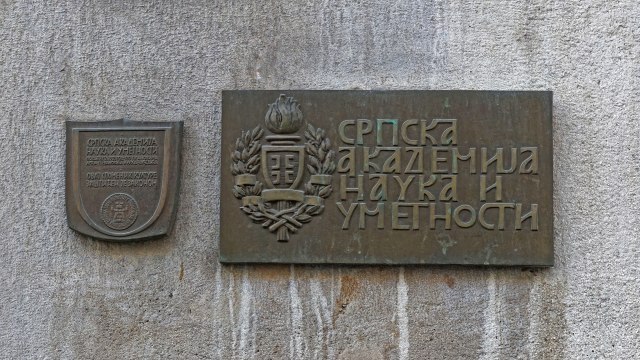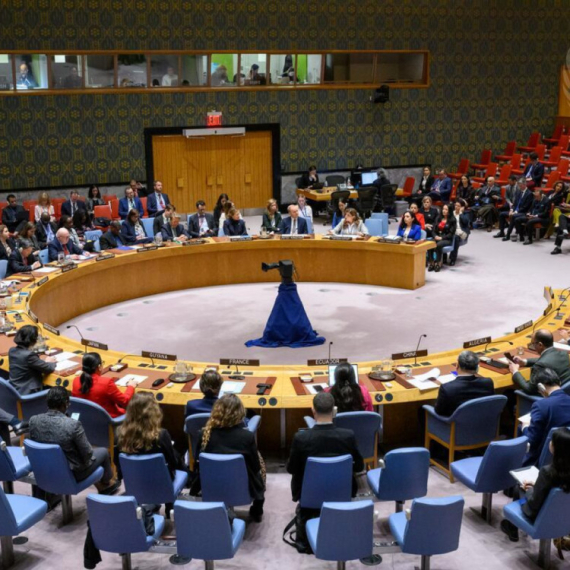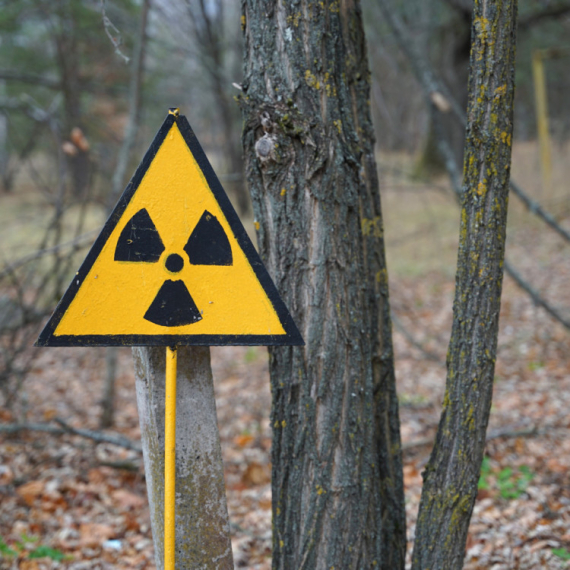SANU on Kosovo: "It is also possible that Pristina is the capital of Texas"
Kosovo's declaration of independence is contrary to international law; International Court of Justice has not ruled on whether it is in accordance with the law.
Wednesday, 29.09.2021.
11:15

SANU on Kosovo: "It is also possible that Pristina is the capital of Texas"
This was said in SANU at the panel of the library where the book "Secession from the standpoint of domestic and international law and its political consequences: Proceedings of the scientific meeting held on July 3, 2020", edited by academician Kosta Cavoski, was presented.According to the editor Kosta Čavoški, 17 works were published in the collection, which represent a thorough analysis of the very concept of secession and the sovereignty of the state, which is violated by it, states Sputnik.
Čavoški said that modern international law does not recognize the right to secession, and added that the territorial identity of states is explicitly protected by the norms of international law. When it comes to the withdrawal of federal units from the federation, such a right does not exist in well-organized federations, Čavoški pointed out.
Applicable international law does not allow the secession of national minorities from a given state, because according to the declaration on the rights of persons belonging to national or ethnic, religious or linguistic minorities, they are guaranteed the right to protection of their identity and enjoyment of their own culture, without interfering with any form of discrimination.
"But nothing in this declaration shall be construed to permit any activity contrary to the purposes and principles of the United Nations, including sovereign equality, territorial integrity and political independence of internationally recognized states. All these provisions have been reaffirmed by the same Declaration of Rights of Persons Belonging to National or Ethnic, Religious or Linguistic Minorities adopted by the UN General Assembly on 2 February 1993. Therefore, the Arbanas minority in Kosovo has never had the right to secede from the Republic of Serbia, so its self-proclaimed state is a mere creation of the occupiers after the NATO aggression in 1999", Cavoski emphasized.
International Court of Justice: A group of citizens declared independence
Dr Budimir Košutić reminded that the Socialist Federal Republic of Yugoslavia was the only state along with the USA that, when the Charter on Human, Civil, Economic, Social and Cultural Rights was adopted, advocated that the right to self-determination be included in the right to secession. That joint proposal of the USA and Yugoslavia was rejected, and the right to secede does not exist in international law, Košutić emphasized.According to him, the analysis of the advisory opinion of the International Court of Justice showed that that court did not consider the issue of the right to secession at all. The court reformulated the question referred by the UN General Assembly so as to avoid commenting on the issue at all, and decided that the Declaration of Independence of Kosovo was adopted by a group of citizens, and not by the Assembly of Kosovo. "If that is true and if that declaration was made that way, it means that that declaration was made by unauthorized persons and that, therefore, it was possible for them to make a decision that Pristina is the capital of Texas and that it really is, from the standpoint of international law, null and void, it doesn't mean anything because that matter is not regulated by international law", Kosutic said.
He pointed out that the International Court of Justice did not respond to what was asked of it, and the purpose of the request was to determine whether the declaration of independence was made in Pristina in accordance with international law.
"Why doesn't anyone hear the alarm bells?"
In the opening speech of the panel, president of SANU, Dr Vladimir Kostić, said that the Academy is often asked why the Academy does not comment on important national issues, and when it does, then no one listens to it."I wanted to write an article in which I would say: 'Why do the bells ring for alarm and why doesn't anyone hear those bells?' Something similar happened with this issue. I don't remember that someone put so much effort in gathering individuals who know their job and tried to answer some key questions that had to be listened to. To what extent were they listened to? Scarcely. I wonder if the brains and intellect have anything to look for in this wasteland, not only in Serbia, I would say in the wasteland of civilization," Kostic said.
He added that Serbian Academy of Arts and Sciences (SANU) organized the Committee for the Serb Question in an attempt to create a structural platfrom from which to announce key issues for society, the state and the people from time to time, and added that these considerations "are not planned to be politically graceful". Kostic assessed that the essential problem at this moment is the attitude towards Kosovo.


























































Komentari 0